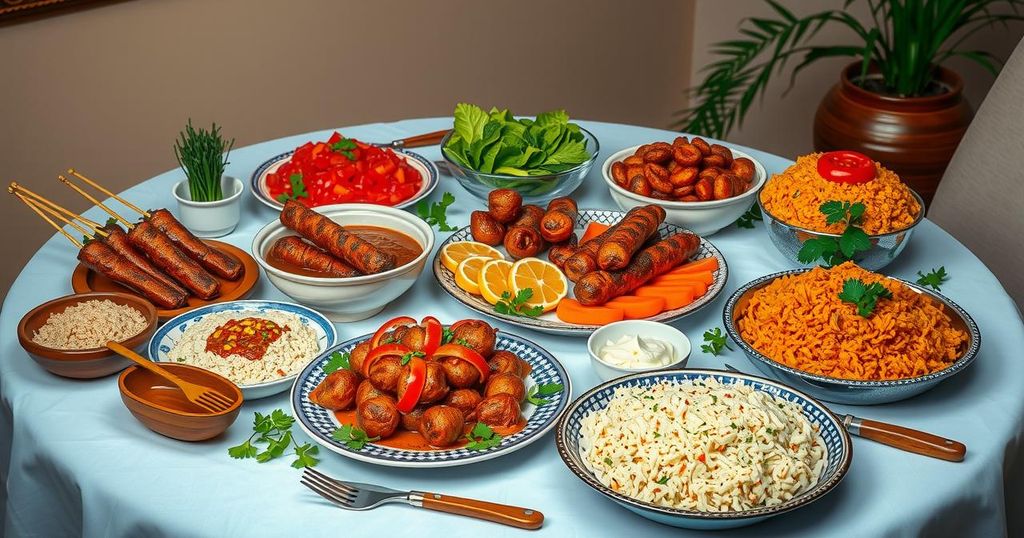Somali Envoy Praises Turkish Cuisine During Ramadan Iftar

Somalia’s ambassador to Türkiye praised Turkish cuisine during an iftar event, noting differences in Ramadan traditions between the two countries regarding meal practices and favorite dishes. He highlighted Turkish favorites and Somali iftar customs, showcasing the uniqueness of both culinary cultures.
In a recent event, Somalia’s ambassador to Türkiye, Fathudin Ali Mohamed, lauded Turkish cuisine as one of the finest globally. He expressed his admiration for the diverse range of traditional dishes during an iftar event organized by Somali students in Ankara, which celebrates the breaking of the fast during Ramadan.
Ambassador Mohamed remarked on the differences between Ramadan practices in Türkiye and Somalia. He highlighted that Somalis typically end their fast with soup and appetizers, followed by prayers before continuing their meals, whereas in Türkiye, the daily ebb and flow of life is largely uninterrupted.
Reflecting on his inaugural Ramadan in Ankara, he pointed out that while many businesses in Somalia close for the holy month, Turkish restaurants remain open. He also described the unique tradition in Türkiye of waking individuals for sahur, the pre-dawn meal, with drumming, contrasting it with Somalia’s method of calling out for sahur.
Mohamed shared his favorite Turkish dishes, including Iskander kebab, kofte (meatballs), fish, and desserts like baklava and kunefe, showcasing the rich culinary landscape of Türkiye.
Mustafa Hassan Abdirashid, leader of a Somali student group in Ankara, added details about Somali iftar traditions. In Somalia, the fast is initially broken with dates and water, followed by a unique pastry filled with minced meat, onions, and coriander.
After prayers, the meal continues with soup, emphasizing bananas, which are integral to Somali cuisine. Somalia boasts eight varieties of bananas, and rice seasoned with spices is a staple during iftar, often paired with camel meat when available, or chicken and beef as alternatives.
Dessert is served to conclude the meal, often enjoyed alongside traditional Somali tea and coffee, encapsulating the essence of Somali culinary tradition.
The Somali ambassador’s remarks highlight the rich culinary traditions present in both Turkish and Somali cultures during Ramadan. Key differences include meal timing and specific dishes, showcasing the uniqueness of each country’s food practices. Turkish cuisine, celebrated for its variety, particularly during this holy month, contrasts with Somali customs that emphasize specific foods and communal enjoyment during iftar.
Original Source: www.dailysabah.com







